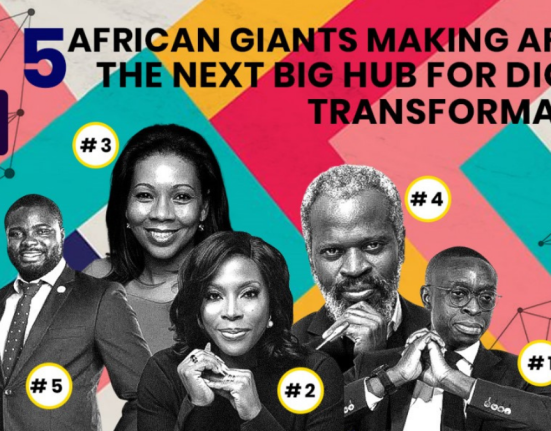Entrepreneurship is often described as the engine of economic growth, innovation, and social transformation. Globally, entrepreneurs drive businesses forward by taking calculated risks, innovating solutions, and creating employment opportunities. Their journeys are filled with challenges, yet the rewards that come with perseverance, discipline, and strategic thinking are immense. This is particularly true in Africa, where entrepreneurship is seen as a powerful tool to address many of the continent’s socio-economic issues, including unemployment, poverty, and economic inequality.
Research from Brookings show that more than 1 in 5 Africans of working-age are starting new businesses, and more than three-quarters of the African youth plan to start one within five years.
Africa’s entrepreneurial landscape is unique, shaped by diverse cultures, economies, and technological advancements. The resilience of African entrepreneurs is evident as they navigate markets with varying degrees of infrastructure, resources, and governmental support. These trailblazers in business have demonstrated that success in Africa requires adaptability, a deep understanding of local markets, and a strong connection to the people they serve. Moreover, African entrepreneurs are increasingly recognized globally for their innovation and leadership in sectors such as fintech, agriculture, and creative industries.
One of the most valuable aspects of African entrepreneurship is the wealth of lessons that aspiring business owners can draw from. By studying the journeys of successful entrepreneurs on the continent, we can uncover critical insights into what it takes to build, sustain, and grow a business in Africa. Below are the top 10 business lessons from renowned African entrepreneurs, including insights from figures like Vusi Thembekwayo, Aliko Dangote, Strive Masiyiwa and Tony Elumelu.
1. Discipline and Consistency are Key – Vusi Thembekwayo
Vusi Thembekwayo, one of Africa’s most dynamic entrepreneurs and motivational speakers, emphasises that the gap between where you are and where you want to be is discipline and consistency. To him, success is about mastering the mundane and executing daily tasks with precision. While the journey to success is not always glamorous, it’s those who show up and work consistently that eventually achieve their goals. Thembekwayo has built multiple businesses and now shares his expertise globally, showing that discipline is what turns potential into results.
2. Focus on Creating Value – Aliko Dangote
Aliko Dangote, Africa’s richest man, built a business empire by focusing on industries that provide essential products like cement, sugar, and salt. His lesson is simple yet profound: always strive to create value for your customers. Instead of focusing on quick profits, Dangote advises entrepreneurs to look at the long-term and build businesses that cater to essential needs. Value creation not only builds brand loyalty but also ensures sustained growth in competitive markets.
3. Start Small, Dream Big – Strive Masiyiwa
Zimbabwean billionaire Strive Masiyiwa, founder of Econet Wireless, started his business during a time of significant political and economic instability. His lesson to entrepreneurs is to start small but have a vision for growth. Masiyiwa began his company with little capital and faced numerous challenges from regulators, yet he persisted. Today, Econet Wireless is one of Africa’s largest telecom companies. His story teaches that no matter the starting point, having a long-term vision is key to scaling a business.
4. Adapt to Your Environment – Rebecca Enonchong
Rebecca Enonchong, a Cameroonian tech entrepreneur, highlights the importance of adaptability in business. As founder and CEO of AppsTech, she built a software company in a challenging environment where access to technology was limited. Enonchong’s success is rooted in her ability to adapt her business model to different markets. Entrepreneurs in Africa, where markets are diverse and sometimes unpredictable, need to remain flexible and ready to pivot when necessary.
5. Leverage Local Knowledge – Njeri Rionge
Kenyan entrepreneur Njeri Rionge, co-founder of Wananchi Group, emphasises the importance of local knowledge. Rionge used her deep understanding of Kenyan consumers and the East African market to build one of the first internet companies in the region. Her experience highlights the value of understanding the specific needs of the market you’re entering. Entrepreneurs who are in tune with the local market can tailor their products and services to better serve their audience, leading to greater success.
6. Invest in People – Tony Elumelu
Nigerian billionaire Tony Elumelu, founder of Heirs Holdings and the Tony Elumelu Foundation, is a strong advocate for investing in people. He believes that an entrepreneur’s greatest asset is their team. By building a motivated, skilled workforce, entrepreneurs can scale their businesses more effectively. Elumelu’s work in empowering African entrepreneurs through the Tony Elumelu Foundation also highlights the role of mentorship and training in driving business success.
7. Stay Resilient in the Face of Challenges – Folorunso Alakija
Nigerian billionaire and oil tycoon Folorunso Alakija’s entrepreneurial journey has been filled with challenges. Her resilience has been a cornerstone of her success in industries traditionally dominated by men. Alakija teaches that every entrepreneur will face setbacks, but it’s how you respond to these challenges that defines your success. Staying resilient and finding solutions amid adversity is essential for long-term success.
8. Innovate or Get Left Behind – Ashish Thakkar
Ashish Thakkar, founder of the Mara Group, started his entrepreneurial journey at the age of 15 and has since become a prominent figure in African business. His lesson for entrepreneurs is to continually innovate. Thakkar has built a diversified business empire by embracing innovation in sectors such as IT, real estate, and manufacturing. In a rapidly changing world, entrepreneurs must be forward-thinking and constantly look for new ways to improve their businesses.
9. Embrace Technology – Ory Okolloh
Ory Okolloh, co-founder of Ushahidi, a platform that allows for crowd-sourced mapping of crisis information, is a prime example of how technology can be harnessed to solve real-world problems. Okolloh teaches that technology is a powerful tool that can drive social change and economic development. For African entrepreneurs, leveraging technology to reach new customers, streamline operations, and scale their impact is crucial in today’s business landscape.
10. Focus on Sustainability – Ibukun Awosika
Ibukun Awosika, former chairman of First Bank Nigeria, is a strong proponent of building sustainable businesses. She advises entrepreneurs to focus not only on profitability but also on making a positive impact on society and the environment. Sustainable business practices ensure long-term success, as they build trust with consumers and investors alike. Awosika’s lesson is that businesses that prioritise sustainability are better positioned to thrive in the future.
The lessons from these leading African entrepreneurs show that success is built on a foundation of discipline, innovation, adaptability, and resilience. By learning from their journeys, aspiring business leaders can gain valuable insights into how to navigate the challenges of entrepreneurship and seize the opportunities that arise in Africa’s vibrant and growing markets. Whether it’s leveraging technology, focusing on value creation, or investing in people, these lessons can serve as a guide for entrepreneurs across the continent and beyond.









Leave feedback about this